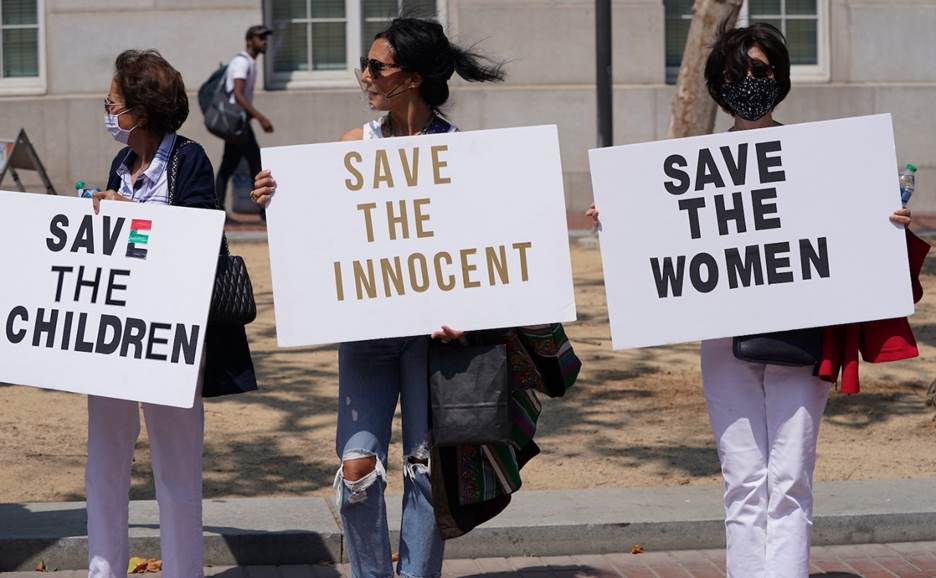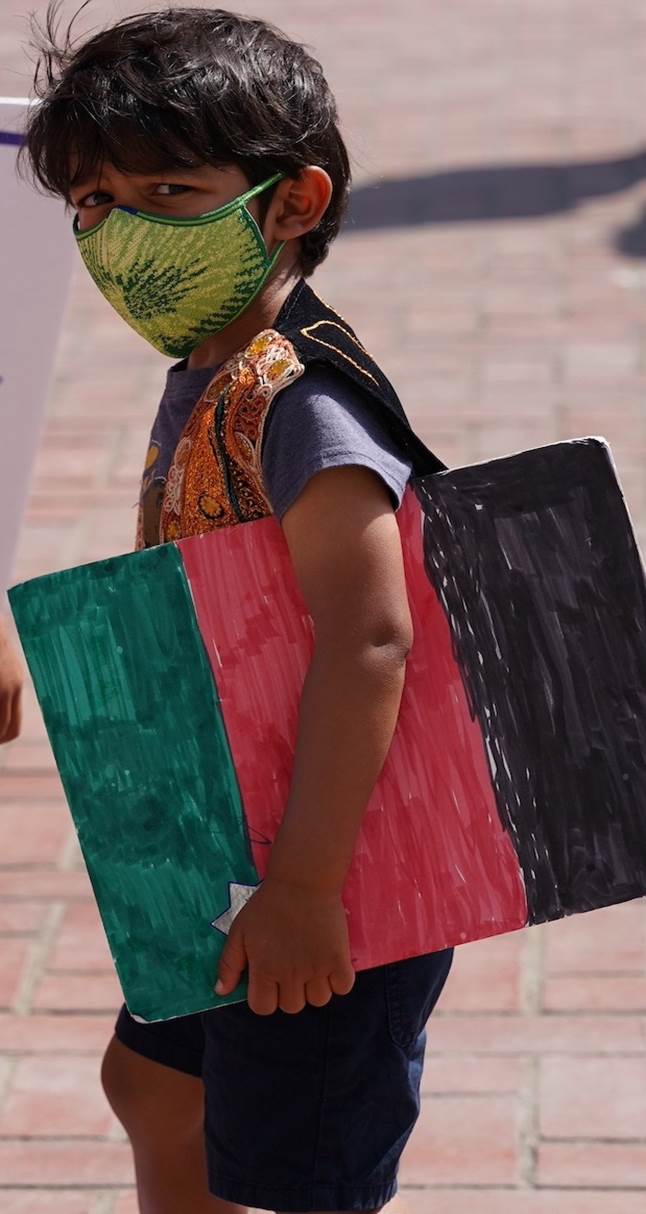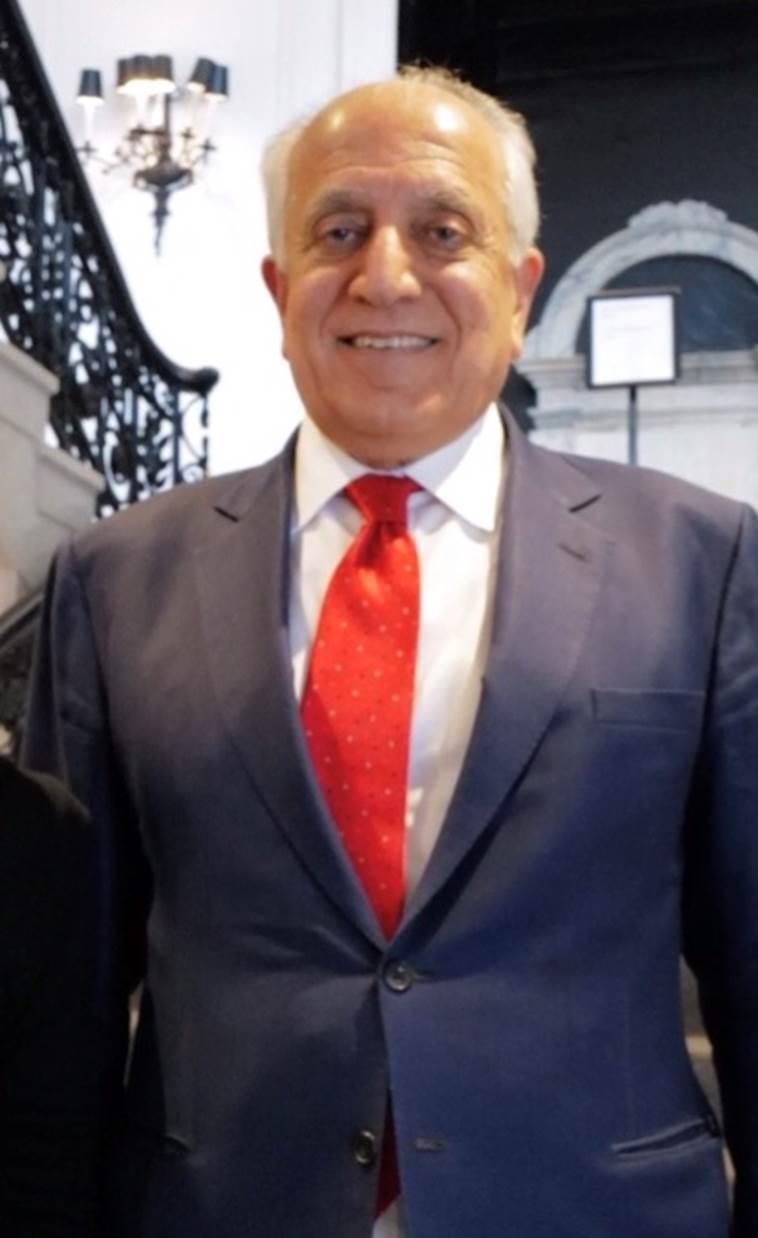
Women protest

A child carries his homemade flag

Ambassador Zalmay Khalilzad
Afghans Demand Education for Women
By Elaine Pasquini
Photos by Phil Pasquini

Washington: Almost 17 months after the Taliban took control of the Afghan government, the issue of women’s and girls’ education remains an emotional one in Afghanistan, other Muslim countries around the world and for NGOs and governments in the West.
A decree prohibiting higher education for women and girls issued December 20 by the Taliban government bans females from attending high school or public and private universities.
“The announcement regarding women’s banishment from higher education by a faction within the Taliban is shocking and incomprehensible,” former US envoy for Afghanistan Ambassador Zalmay Khalilzad told this reporter.
Despite promises to re-open schools for females, the Taliban changed course and decreed that girls are not allowed to attend school beyond grade six. Additionally, women are not allowed to work outside the home or travel without a male escort.
The Taliban-controlled government’s December 24 order to all international and local NGOs to fire their female aid workers prompted outrage from Jan Egeland, head of the Norwegian Refugee Council. “Millions and millions will suffer,” he said. “This is a place where millions are hungry, millions are freezing, millions are out in the open, millions are displaced” because of the Taliban preventing female aid workers across Afghanistan from working. “We cannot do our work without our female colleagues…We have to have a reversal of this ban on female employees.”
The All India Ulama Board issued a statement that banning women from education violates Islamic teachings, calling this step of the Taliban “unwise and cruel.”
The government ban is tantamount to discouraging and denying women's rights, because education belongs to every human being, whether they are men or women, the group claims.
The All India Ulama Board also pointed out that during the era of Prophet Muhammad (PBUH) female teachers were also appointed, the same as male teachers.
“The Holy Prophet (PBUH) encouraged the education and training of daughters,” the statement read. “It is said in the Hadith that whoever raises three daughters, educates them and treats them well, for him is Paradise.”
In the Islamic period, continuous efforts have been made to achieve and promote education, in which the services of women alongside men in various fields of science and art are prominent and the history is bright with its brilliant examples, the Board said. “In the Prophet's mosque, education and exhortation were organized after the prayers, in which men and women participated equally, and through Friday, Eid and Hajj sermons, general education and culture were organized, which led the country and the nation. It has played an important role in the evolution of human civilization.”
The Board issued a declaration that “education is the main goal of life and Islam has always encouraged knowledge and education.” In the Holy Qur'an, “the study of knowledge has been encouraged, and encouraged at many places.”
“Such cruel decisions of the Taliban government will prove to be the last nail in the coffin for Afghan women,” the group stated. “Besides, it is also dishonoring Islam at the international level because such unfair decisions are being made in the name of Islam.”
The All India Ulama Board called upon the heads of Muslim countries to demand the Taliban government cancel this decision. And the government of India should also “condemn this decision at the diplomatic level because it is not only a women's problem but also a problem for future generations of Afghans,” they said.
Prior to the Taliban’s takeover, Afghanistan hosted almost 50 colleges and universities with many women students. Prior to August 15, 2021, Kabul University trained 23,000 students and offered the first-ever master’s degree courses in gender and women’s studies. Other universities in the country which allowed women to attend include the American University of Afghanistan, Polytechnical University, Herat University and Nangarhar University, among others.
Despite increased educational opportunities for both men and women during the 20 years of the US-led occupation of Afghanistan, the United Nations Development Program’s 2020 annual report reflects that the country is ranked 169th in women’s education, one of the lowest in the world.
Recently, Afghan men – husbands, fathers, brothers – have been showing solidarity with women by participating in street demonstrations in Kabul and other cities. Across the country, male university teachers have resigned, and many male students have walked out of their classrooms in support of their female colleagues. Some refused to take exams and even destroyed their diplomas.
In a December 7 interview with the Hudson Institute, Ahmad Massoud, leader of the National Resistance Front of Afghanistan, stated: “We want more than just to have schools opened for girls and for humanitarian aid to be allowed to be delivered. We want more…we want to have a dignified life and we want just like everybody else to have the right to live peacefully and in harmony with the world.”
(Elaine Pasquini is a freelance journalist. Her reports appear in the Washington Report on Middle East Affairs and Nuze.Ink.)

